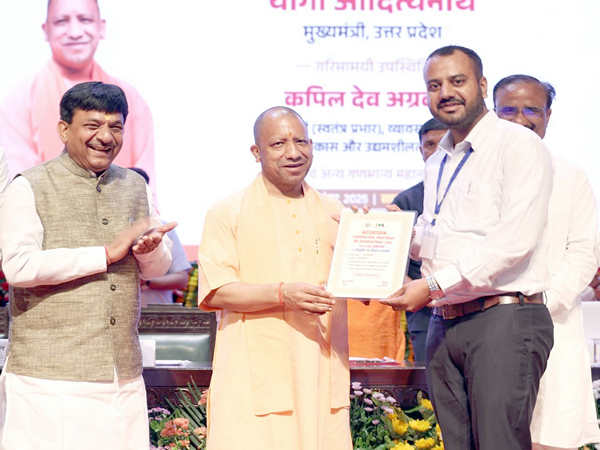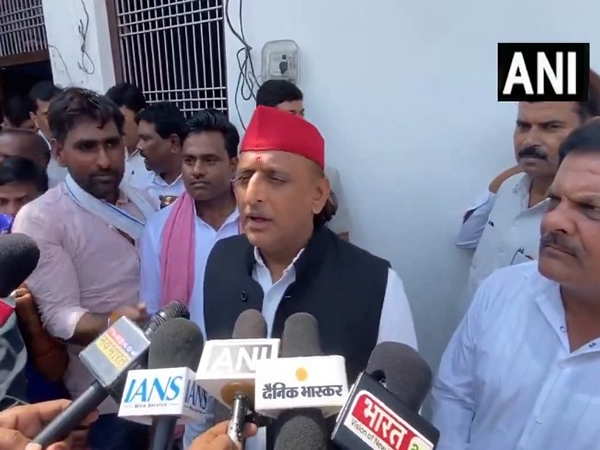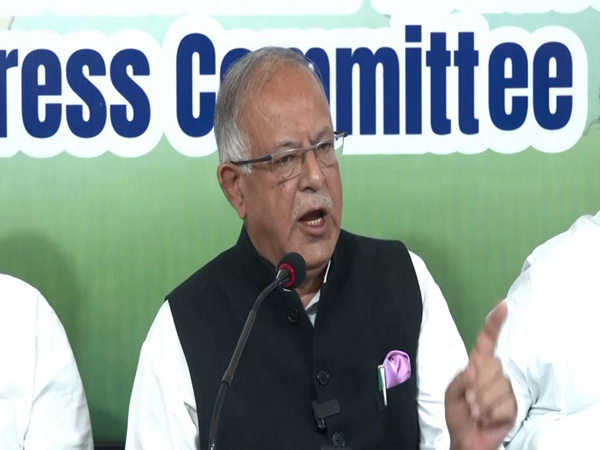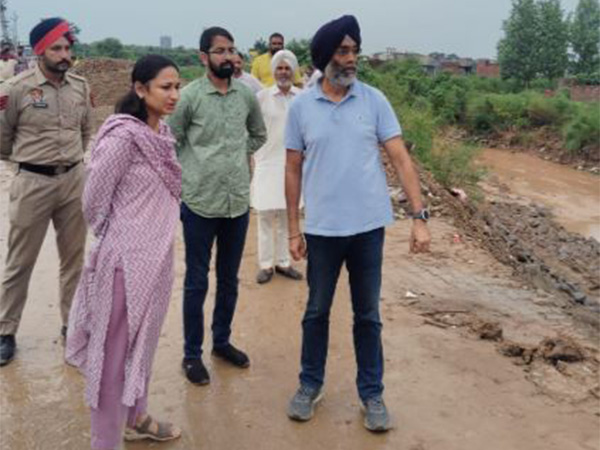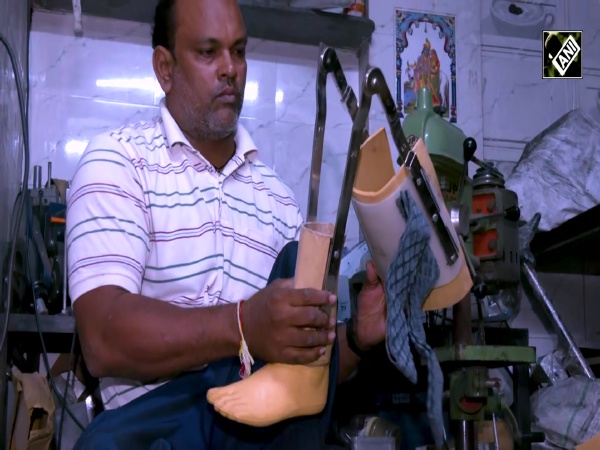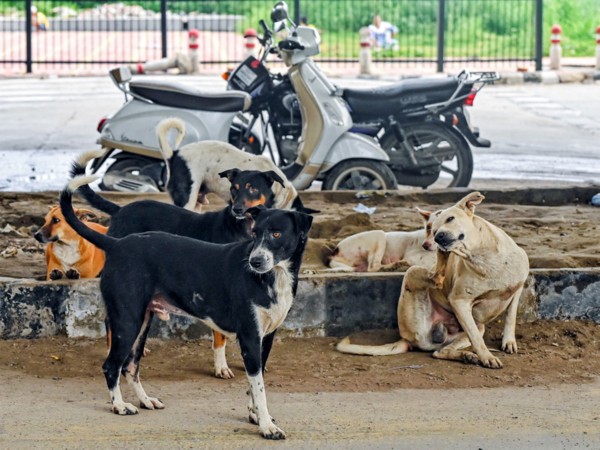
UP govt issues updated guidelines to manage stray dog population and ensure safe feeding practices in urban areas
Sep 06, 2025
Lucknow (Uttar Pradesh) [India], September 6 : Responding to the persistent challenge of stray dog bites and human-animal conflicts in urban areas, the Urban Development Department (UDD) of Uttar Pradesh has released an updated circular with stringent measures for stray dog management. The directive builds on previous guidelines and targets municipal corporations and municipalities. It prioritises humane treatment under the Animal Birth Control (Dogs) Rules, 2023 (ABC Rules, 2023), while emphasising public safety, particularly for children and senior citizens.
The circular, informed by directives from Chief Minister Yogi Adityanath and aligned with Supreme Court mandates and the Prevention of Cruelty to Animals Act, 1960, outlines a multi-faceted strategy. This includes structured feeding zones, conflict resolution mechanisms, continuous ABC programs, and awareness initiatives to foster community involvement.
According to the guidelines, feeding zones or areas must be identified based on the population of street dogs in each ward or locality. Local bodies are required to ensure sufficient feeding spots proportional to the number of stray dogs, preventing them from wandering outside these areas in search of food. These zones should be located away from children's play areas, entrances/exits, or places with high movement of children and senior citizens to minimise accident risks. Feeding times must be scheduled during periods of low activity by children and seniors near these areas, further reducing the chance of incidents.
Feeders are obligated to provide food and water to street dogs only within designated zones and must maintain cleanliness, including proper sanitation and disposal of leftover food. They are required to adhere to all rules set by Resident Welfare Associations (RWAs), apartment societies, or owner associations. Animal lovers can contribute to feeding but are prohibited from doing so in high-density movement areas. Additionally, feeders are encouraged to assist local bodies in implementing the ABC program and administering rabies injections to stray dogs.
In cases of contradictions or disputes between RWAs, apartment/owner associations, and animal caregivers, an animal welfare association committee will be formed. This committee will include the Chief Veterinary Officer, a nominated area police officer, RWA members, the applicant (caregiver), and other relevant stakeholders. The committee's decision on feeding points will be final, and it will also nominate a caretaker under the sub-rules of ABC Rules, 2023, the guidelines stated.
If disputes persist or decisions are unstable between RWAs, local bodies, animal welfare associations, or the sub-rule committee, the matter will escalate to the state board for a final decision on feeding arrangements.
No feeding is allowed outside designated zones. Local bodies must install notice boards at feeding areas outlining guidelines, explicitly stating that feeding stray dogs outside these zones is prohibited. Strict actions, in accordance with rules, will be taken against violators found feeding in unauthorised areas.
Threatening or fighting with animal lovers, especially women, who are feeding street dogs in compliance with rules, is deemed a crime, with strict actions will be taken.
Urban local bodies will conduct awareness programs to educate residents on identifying feeding zones and resolving related issues. A dedicated helpline number will be provided by local bodies for reporting and addressing concerns. To tackle the major issue of dog bites, awareness campaigns will seek support from NGOs, organisations, institutes, and animal lovers for the successful ABC program implementation. The state government will award local bodies, NGOs, or others excelling in these efforts.
Animal lovers can adopt street dogs by submitting applications to local bodies. After dog identification, the adoption process will proceed, but adopters cannot abandon the dog afterwards. The ABC program will run continuously in local bodies, involving sterilisation and rabies injections. Post-procedure, dogs will be returned to their original geographical areas. However, rabies-infected or aggressive dogs will be kept at ABC centres for monitoring.
Local bodies must develop pounds for housing rabies-infected and aggressive dogs. Under the ABC program, dogs will be caught humanely, without unwanted methods. Training will be provided to dog catchers periodically.
Every local body, including municipal corporations and councils, must nominate a nodal officer to oversee these activities.
A monitoring cell will be established under the additional director at the Directorate of Urban Local Bodies to oversee program implementation. All initiatives will operate under the ABC Rules, 2023.
The updated circular reinforces earlier mandates, including mandatory pet dog registration with local bodies, involving details like breed, age, vaccination status, and issuing certificates or tags. Fines apply for non-compliance. Sterilization and anti-rabies vaccination camps must be organized regularly in collaboration with animal welfare organizations (AWOs) and veterinarians, with budgets allocated and high-risk areas prioritized.
Aggressive dogs will be captured humanely using trained staff and equipment, quarantined, and treated or euthanised only as per legal guidelines. Shelters for injured or ill dogs will provide care, rehabilitation, and adoption services. Public awareness campaigns via posters, social media, and schools will promote responsible practices, rabies prevention, and helplines for dog bite reports.
Collaboration with AWOs, NGOs, and the Animal Welfare Board of India (AWBI) is mandatory, with monitoring committees in each urban body comprising officials, veterinarians, and activists for oversight and complaint handling. Cruelty, unauthorised relocation, or euthanasia is strictly banned.
Principal Secretary of the Urban Development Department, Amrit Abhijat, highlighted the comprehensive approach, "Dog bites remain a critical public health concern, and these updated guidelines ensure a humane yet effective management of stray dogs. By designating safe feeding zones, resolving disputes through committees, and promoting community participation in ABC programs, we aim to protect vulnerable groups like children and seniors while upholding animal welfare. Local bodies must implement these measures promptly, with state-level monitoring to guarantee success across Uttar Pradesh."

